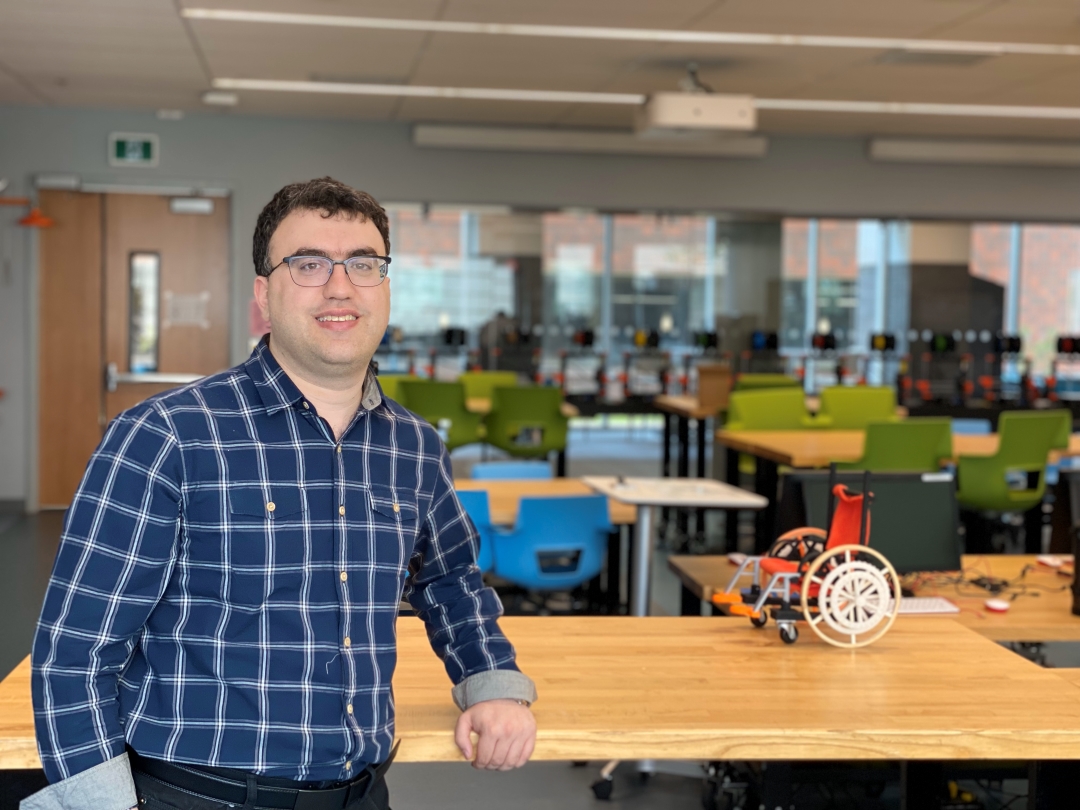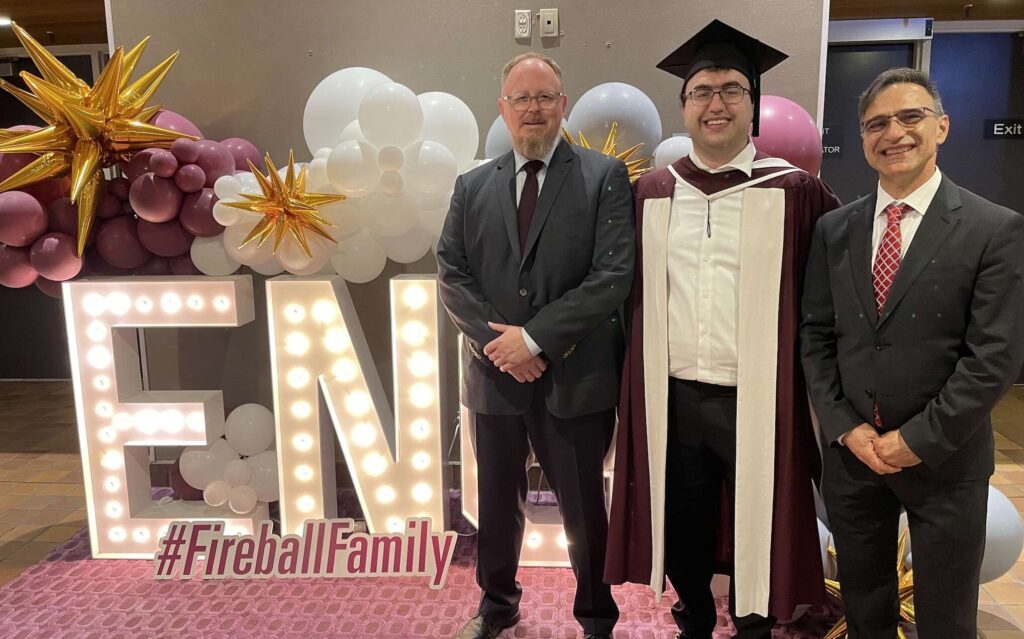
Omar Boursalie, an assistant professor in the Integrated Biomedical Health Sciences and Engineering (iBioMed) program and the Department of Mechanical Engineering, has a lifelong connection to McMaster. It’s where he was born, collaborated for his entire academic career and researches using machine learning, a subfield of artificial intelligence (AI), to augment healthcare systems and improve patient care.
“I always joke that the grand displacement of my life is about 300 meters,” Boursalie says with a laugh. It’s surreal being born at Mac, starting undergrad in 2009, completing grad school and becoming an assistant professor here. Mac changed my life.”
While AI dominates headlines today, Boursalie has been researching how to use machine learning in healthcare for the past decade. His interdisciplinary research includes developing responsible AI for personalized disease prediction, clinical decision-support systems and IoT remote patient monitoring smart devices. He also investigates human-AI partnerships in healthcare.
Augmenting Healthcare with AI
Boursalie envisions a future where machine learning models like Generative Pre-trained Transformers (GPT) can do more than generate sentences, such as in ChatGPT. Instead, GPT models can be used to predict a patient’s health trajectory. For this, every “word” is a piece of data on a patient, like a health event. The “sentence” is their medical history. This approach could enhance a doctor’s ability to understand a patient’s health for diagnostic and risk assessment. “Imagine modelling outcomes of different medications or treatments before starting treatment to understand the likely results better,” he proposes.
Augmenting the ability to predict outcomes and intervene earlier would change people’s lives. But Boursalie isn’t stopping there. “Once AI models are deployed in health settings, the models quickly become outdated as the patient population changes. My next step is to develop a lifelong machine-learning system that continuously updates after deployment. My long-term goal is to use the lifelong machine learning system to investigate human-AI interactions and provide personalized feedback based on the user’s knowledge level.”
“McMaster has the ability to bring together academia, research, and industry in the healthcare field. It truly is one of the best places to discover new ways to improve the landscape of health using new technologies in ways we could never have imagined, and I’m proud to research here.”
Data That Makes a Difference
While this may seem like a job for technology companies, Boursalie believes this research can only be done at public institutions with a history of collaboration between engineering and healthcare that prioritizes the public impact. After all, patient data is private and confidential.
McMaster’s unique relationship is being a campus with a hospital supporting research in AI and healthcare. “One advantage that McMaster University has is because we have those collaborations, they let us through the door,” he says.
“My PhD work with Thomas Doyle and Reza Samavi was brought about by McMaster’s then Chief Radiologist, Dr. David Koff, who wanted to research the cancer risk from low-dose radiation exposure due to medical imaging, Boursalie says. “Working with Dr. Koff and Hamilton Health Sciences (HHS), we got access to analyze about ten years’ worth of Canadian medical data using AI, which at the time was enormous.”

